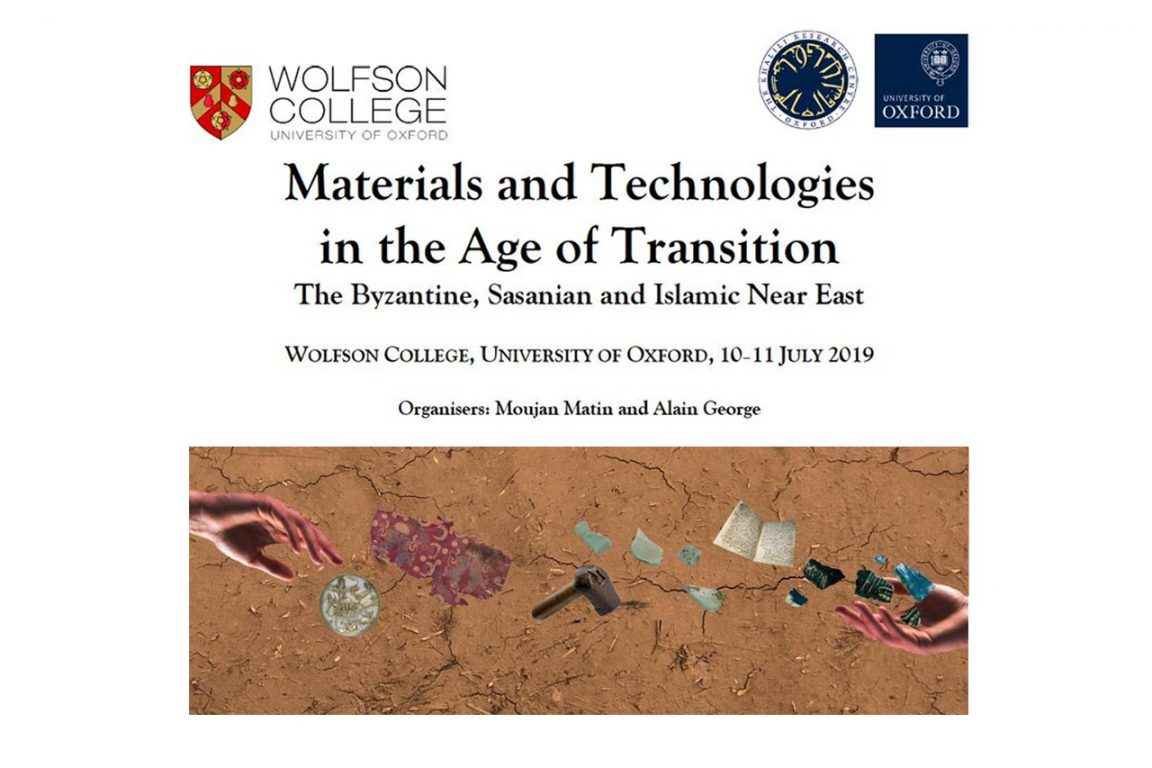Materials and Technologies in the Age of Transition: The Byzantine, Sasanian and Islamic Near East

About The Event
Date: July 10-11, 2019
Venue: Wolfson College, University of Oxford, Oxford, UK
Organizers: Moujan Matin and Alain George
Between the late seventh century and the so-called Golden Age of Islam in the ninth to tenth centuries, the patronage of Islamic courts promoted the establishment of learned circles, observatories and semi-public libraries, the conduct of scientific research, and a translation movement from Greek and Sanskrit into Arabic.
Despite their crucial importance, these archaeological scientific projects tend to focus on only one type of material – e.g. metalwork, or pottery – and hence fail to provide a broader historical perspective on the development and spread of technologies and the cross-technology interactions.
This symposium will provide a rare occasion to bring together historians and researchers engaged in scientific study of different materials, and to help transform their respective outlooks on the Byzantine-Islamic transition in different artistic media. This one-and-a-half-day symposium will be divided into six sessions.
Supported by:
– The Khalili Research Centre for the Art and Material Culture of the Middle East, University of Oxford
– Ancient World Research Cluster, Wolfson College, University of Oxford
– Oxford Centre for the History of Science, Medicine and Technology
– Society for the History of Technology
– The British Institute of Persian Studies
– The Iran Heritage Foundation
For registration please visit: eventbrite.co.uk
Location
Wolfson College, University of Oxford


We're always eager to hear from you.
If you’d like to learn more about us or have a general comments and suggestions about the site, email us at